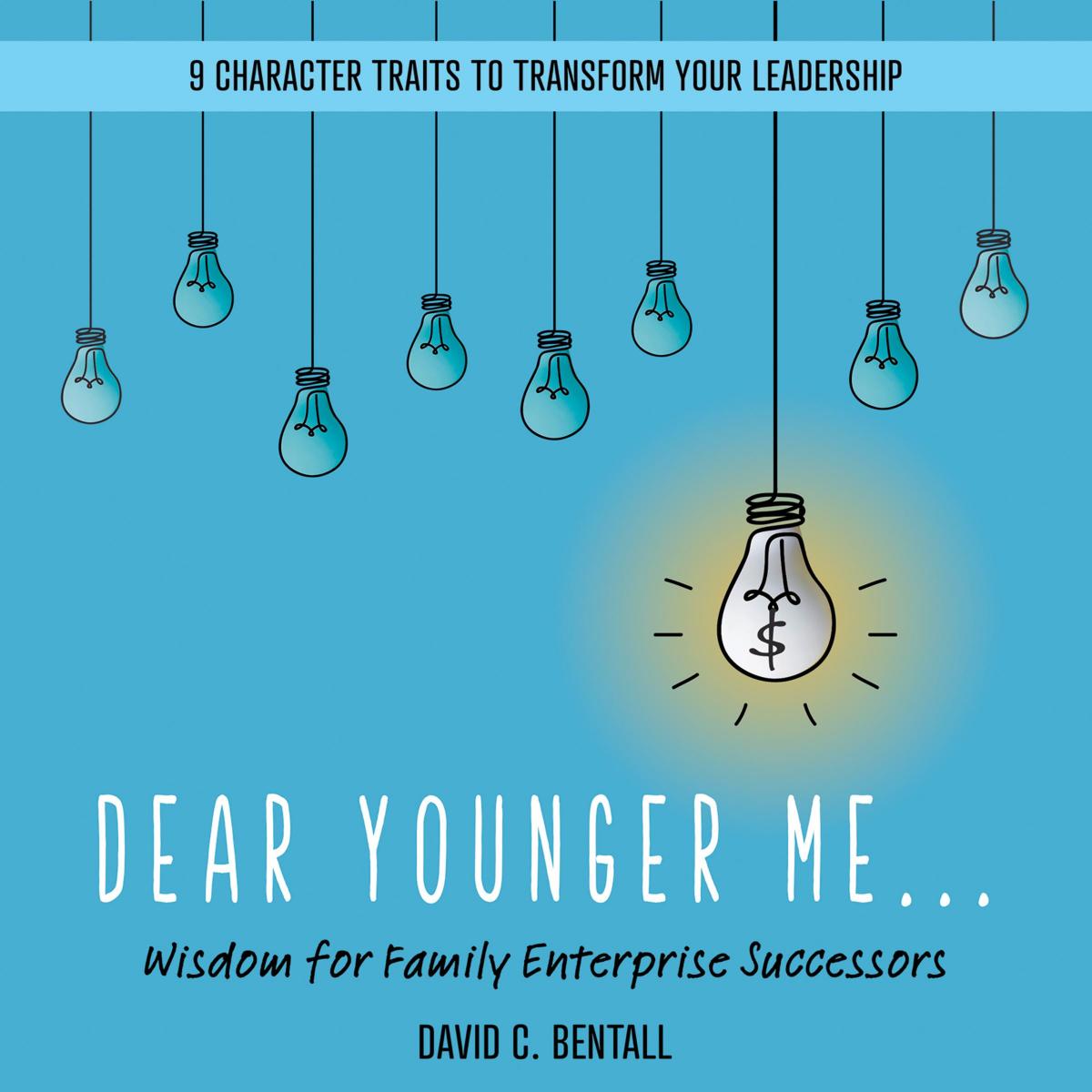Why leadership, trust and humility are key in family business

A third-generation successor turned adviser and author says the fate of his family business could have been “radically different” if he had been humbler as its principal.
David C Bentall worked for 20 years in his family’s major Canadian business, Dominion Construction, including seven years as its president and chief executive. During his tenure as principal, the business doubled in size to $240 million in sales.
Bentall family ownership of Dominion dated back to 1912 when English immigrant Charles Bentall, David’s grandfather, joined the newly formed company as an assistant general manager and first engineer. Within a decade, he had become its president and majority shareholder.
Dominion built many of Vancouver’s landmark office towers, including the 17-storey World Building (pictured) in 1915, then the tallest building in the British Empire. The expanding, innovative and paternalistic business survived world wars and the Great Depression.
However, a dispute and split between second-generation brothers Clark and Bob Bentall over third-generation roles in 1988, followed by the failing health of Clark Bentall due to Alzheimer's disease, were the undoing. Family control over Dominion and its property management company Bentall Corp ebbed away in mergers by 2000.

David Bentall is a graduate of the University of British Columbia, the Harvard Business School and serves as an adjunct professor at the Sauder School of Business. As the founding principal of Next Step Advisors, he is a sought-after consultant, workshop leader and mentor.
Bentall’s bestselling book The Company You Keep (2004), was awarded ‘book of the year’ and his subsequent book Leaving a Legacy (2013) has become an acclaimed resource for business families.
Following our publication of an extract from his new book Dear Younger Me: Wisdom for Family Enterprise Successors in February, CampdenFB asked Bentall for his views on the family values he grew up with, the leadership errors he sees families make, how principals can cultivate humility and which gender makes for a better family business leader—men or women?
Which leadership attributes did you learn from your father that you applied in your family business?
Our dad, H Clark Bentall, and our grandfather, Charles, were both known for their integrity. Dad emphasised the importance of this to me, by paraphrasing Shakespeare, and saying: “If a man steals from me, my good name, he robs me of something which is of no value to him, and acquires something which I will never be able to re-purchase.”
Because they were honourable, and could genuinely be trusted, employees, customers, and community leaders all respected both these men. In contrast, many people believe that real estate developers and contractors generally cannot be trusted. Being different in this way was foundational to the success that our family enjoyed.
I sought to follow their example, endeavoring to be trustworthy and honest in my business dealings. Our approach was recognised when we were competing to build the new arena for our NHL hockey team, the Vancouver Canucks. When we were awarded the project, the vice chairman of Orca Bay Sports and Entertainment stated he wanted to do the $100 million project with us, because he believed “We could be trusted”.
 What are the common leadership mistakes that family principals make in business?
What are the common leadership mistakes that family principals make in business?
Family business leaders are typically unable to objectively assess the capacity and competence of the next generation. Commonly, they will have either an over inflated, or overly critical assessment of the members of the rising generation. This can create real challenge for everyone, because other executives, as well as family members can easily see such a lack of impartiality. This not only reflects poorly on the family members involved, it can also cause significant conflict.
Personally, while working in our family business, I suffered from my dad being overly supportive of me, and my uncle being overly critical. This caused challenges between them, as well as within the ranks of senior management. It also made it hard for me to ever understand where I stood.
Thankfully, when we appointed a non-family chief executive to head up our construction company, I began reporting to him. He was much more objective, and provided me with both hard-hitting performance evaluations, as well as supportive coaching. Too often, family enterprise successors are left to their own devices, trying to sort out their careers, without the benefit of an objective mentor.
 Can you describe an instance when the lack of humility in a family principal detrimentally impacted the business?
Can you describe an instance when the lack of humility in a family principal detrimentally impacted the business?
A lack of humility will often result when a leader has enjoyed significant success. For example, I know of two great entrepreneurial leaders, whose early career success contributed to them becoming overly confident, and arrogant. Rather than accepting advice and counsel from others, they became convinced that they “knew better” than everyone else. This ultimately resulted in the failure of their subsequent business ventures.
Like these leaders, I also lacked humility as an aspiring successor. This not only contributed to many of my career challenges, but my challenges also spilled over into the ranks of the senior leadership, causing division and conflict. These factors contributed to the tragic sale of our family company, as it approached its 100th anniversary. Had I been humbler, more willing to take advice from others, and less “full of my own importance” things could have been radically different for us as a family and as a business.
 Do women make better family business leaders than men?
Do women make better family business leaders than men?
If it obviously unhelpful to say that either men or women are better leaders for a family enterprise. However, I do believe that many women possess qualities and characteristics which can equip them to be better leaders, in a family enterprise, than their male counterparts. Permit me to explain.
Leadership in a family enterprise is, by definition, more complex. This is because, in addition to all the variables all business executives must manage, the leader of a family business is required to consider the “family dimension” including the “family relationships” Some of the qualities essential to succeed in managing the family element of a business include listening, empathy and humility—each of which I have written extensively about in Dear Younger Me.
These three qualities have been noted as areas where women often excel. For example, Jo Hausman, in her book Go For It!: A Woman's Guide to Perseverance, states that women are better listeners, because they “take the time the listen, instead of reacting right away.”
Regarding empathy Anna Crowe, chief executive of Crowe PR, adds that: “Most women are naturally empathetic and value relationships.”
Finally, in relation to humility, Joan Wrabetz, chief technology officer at Quali, observes: “Ego so often gets in the way of good decision making in the C-suite. Women exhibit ego differently, and they are good at decision making with the ego held in check.”
All of these traits, can be invaluable, enabling women to excel when leading a family enterprise.
 How can family business leaders gain humility?
How can family business leaders gain humility?
Cultivating humility is “tricky business” because it actually requires an attitude of humility in order to cultivate the quality of humility.
However, for those who want to develop humility, I recommend the following initiatives:
- Recognise that you may not have all the answers. This will help you to be open to other people’s ideas and suggestions.
- Acknowledge that you are not perfect. This will help you to be willing to accept constructive feedback.
- Resolve to avoid arguments. This will encourage you to be more curious about why others may see things differently, and to ask more questions.
- Decide to hold others in high esteem. This will ensure that you respect their views and listen more patiently to their comments.
If an individual can habitually interact with others in the ways noted above, an attitude of genuine humility cannot help but grow and develop.
 How can family businesses generate loyalty among staff?
How can family businesses generate loyalty among staff?
Some employers have tried to increase employee loyalty by hosting regular beer and pizza nights. More expensive, but widely utilised are profit sharing plans and exotic rewards trips. More recent innovations have included weekly in-office massages, kombucha on tap, or afternoon ice cream treats.
However, there is potentially a more effective, and much less expensive alternative. In a workshop attended by numerous family enterprise successors, they observed that leaders who display humility increase employee loyalty. The idea was explained in the following way:
- When a leader demonstrates humility, employees feel respected and more like equals
- This increases dialogue and trust in the workplace
- People feel safer, and more empowered
- Enthusiasm and inspiration grows
- Employees come to believe that the company is no longer just about the leader
These factors, when fostered, create an environment where employee loyalty and commitment flourishes.






